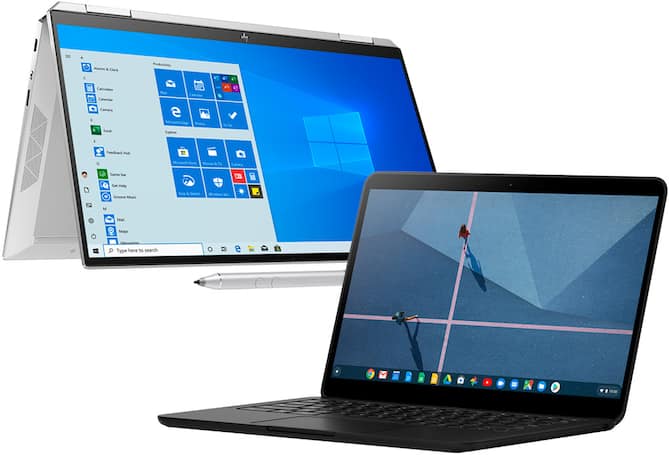Differences Between a Laptop and a Tablet

Best Selling Products carousel(6 Items)
Which is better, laptop or tablet?
Laptops vs. tablets
Laptop pros
Pros to using a laptop include:
- Software compatibility. Laptops can run on a wide range of software applications, including more powerful desktop applications that might not be available on tablets.
- Storage space. Generally offering larger storage capacities, laptops are useful for storing big files, software and media libraries.
- Precision and control. Traditional laptops are equipped with physical keyboards and USB ports that allow you to hook up a mouse, making it more comfortable during extended typing sessions while also giving you more control over various computing tasks.
- Portability. Although tablets are even more convenient to bring with you on the go, laptops can easily be folded up and transported from one location to the next.
Tablet pros
Pros to using a tablet include:
- Extra portability and convenience. Tablets are more compact, lightweight and portable than laptops, making them ideal for on-the-go use, casual browsing and entertainment consumption.
- Touch interaction. Advanced touchscreens allow for intuitive interactions, making tablets great for tasks like browsing the web, watching videos, reading e-books and playing games.
- Battery life. Tablets often have a longer battery life than laptops, making them suitable for activities that require extended use away from a power source.
- Drawing and note-taking. When using a tablet stylus pen, you can easily jot down notes that can be converted into a typed word document or you can express your creativity through sketches and digital paintings.
2-in-1 laptops vs. tablets
While traditional laptops have enough distinct features to differentiate themselves from tablets, a 2-in-1 is a laptop that works like a tablet. 2-in-1 laptops function both as a traditional laptop with a keyboard as well as a standalone tablet. So, if you are looking for the most versatile option that can cover all of your computing needs, a laptop that folds into a tablet might be your best option. Detachable 2-in-1s are also available, allowing you to completely remove the keyboard portion of the device.
However, without the high processing power and attached keyboard, tablets are typically more affordable and durable. So, if you are on a budget and still want a device with a wide array of computing capabilities, a tablet is probably the better choice.